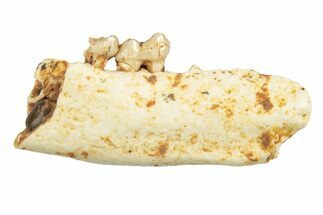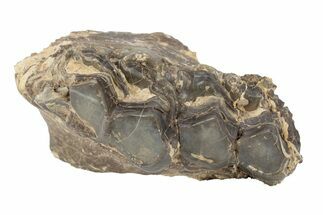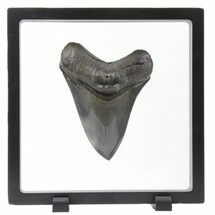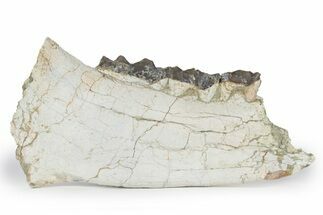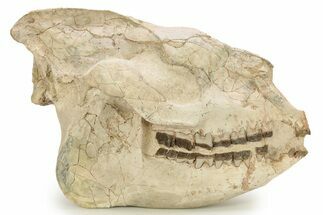This Specimen has been sold.
1.02" Fossil Early Ungulate (Dremotherium) Jaw - France
This is a 1.02" wide portion of the lower jaw (mandible) from an Oligocene ungulate (Dremotherium). The bone contains 3 well-preserved teeth.
Dremotherium was a prehistoric genus of musk deer. Musk deer are a kind of artiodactyl ungulate related to true deer, camels, and giraffes. Unlike true deer, they lack horns or antlers, and modern members have a musk gland, likely used to attract mates. The Moschidae family, which encompasses the musk deer, was much more widespread in the Oligocene, but is now comprised solely of the genus Moschus. Dremotherium likely lived a similar lifestyle to its modern descendant, living as a generalist herbivore.
The Artiodactyls are a group of mammals often called "even-toed" ungulates. They are called such because modern members of the group support their bodies on enhanced third and fourth digits (fingers), ending in hooves. Their first, second, and fifth digits are often reduced or nonexistent in modern species, however many extinct and fossil species retain five-toed feet. All artiodactyls, with the exception of whales and their ancestors, are herbivorous.
SPECIES
Dremotherium gracilis
LOCATION
Lot (Formerly Quercy), France
FORMATION
Quercy Phosphorites Formation
SIZE
1.02" Wide
CATEGORY
ITEM
#218512
We guarantee the authenticity of all of our specimens.
 Reviews
Reviews

